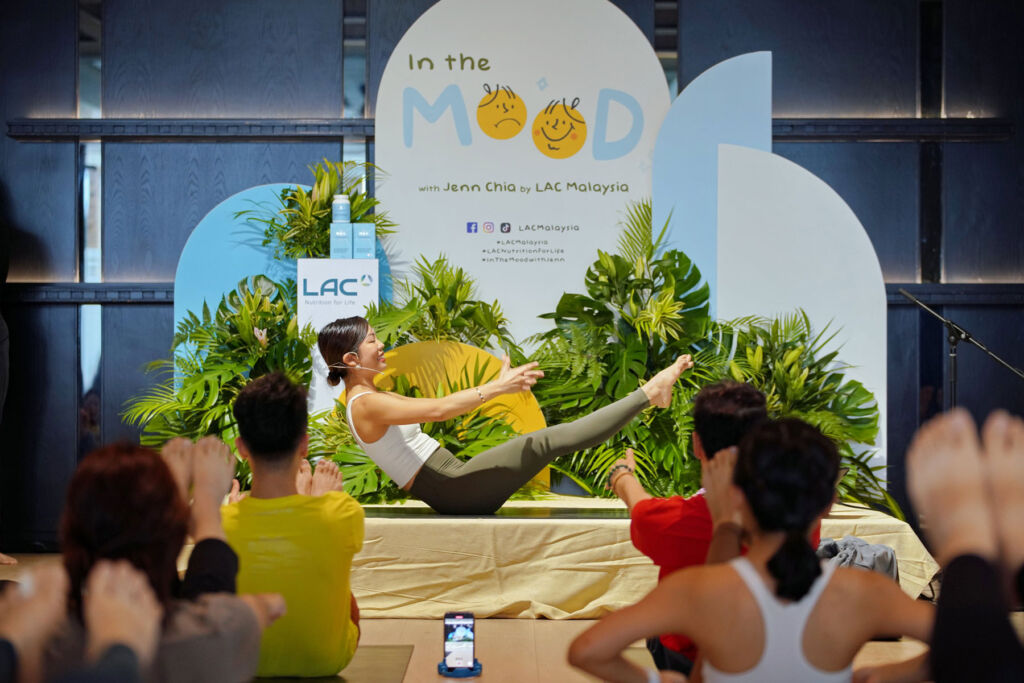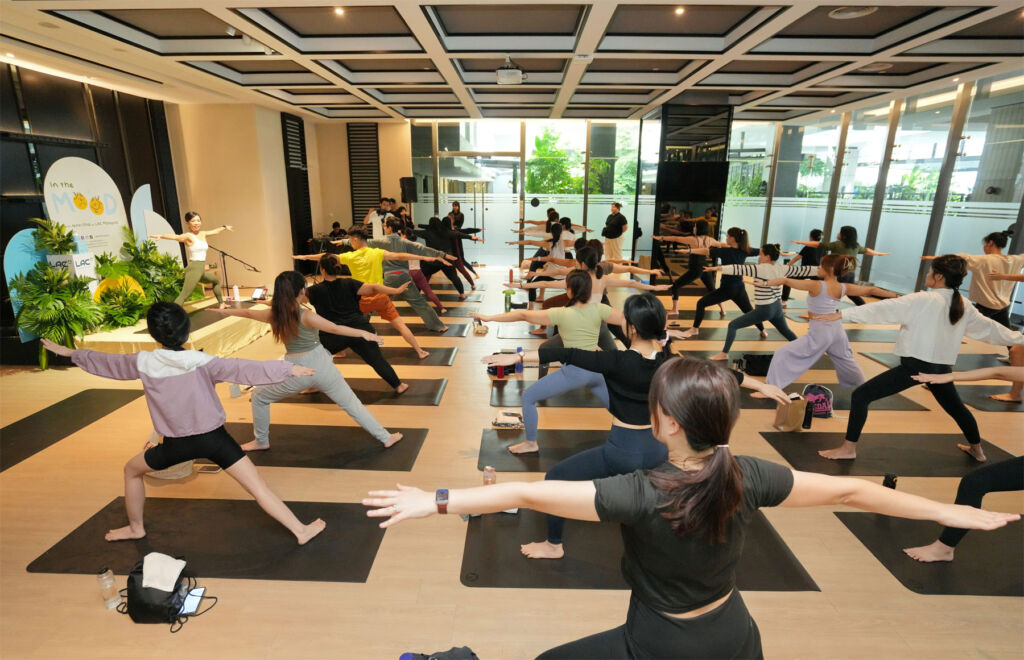
LAC Malaysia recently held a Weekend Workshop, which delves into mind matters and leaves with useful and practical tools for coping with the effects of daily stress. Eager to learn more, Ong Chin Huat went along in search of peace and personal sanctuary.
How do one’s emotions affect one’s moods? Is there a correlation between the two? And most importantly, how does anyone regulate one’s emotions?
All these pertinent questions relating to anyone’s mental health and well-being were addressed at a recent weekend workshop organised by LAC Malaysia in collaboration with content creator Jenn Chia, with the addition of experts who gave useful tips and tools to those who attended.

Called “In The Mood”, this event started off with a yoga class conducted by Jenn Chia, herself a certified yoga instructor and practitioner. Sharing her own personal journey and experiences which she encountered during the dark days of the pandemic and through various lockdowns, Jenn recounted to the attendees her own struggles with her moods and triggers and how she faced them.

“I found my own peace and personal sanctuary through yoga, and I feel privileged to extend this transformative journey to others,” she said during her yoga session.
“In our fast-paced and time-pressed modern lifestyle, finding moments for ourselves can be challenging. Besides the movement aspect, which I discovered in yoga, our dietary choices also play a crucial role. Moods and emotions also play a significant role in shaping our day.”
Coinciding with this workshop, LAC also launched its latest arsenal against modern stressors and pressure, M.R.X – an all-natural supplement designed to support mood regulation.

Meticulously formulated, M.R.X. is created to enhance overall well-being, particularly mental well-being, by promoting relaxation, brain function and alertness.
The supplement contains mood-enhancing herbal extracts such as Ashwagandha Root and Rhodiola Rosea Root, as well as other nutrients such as DHA (Docosahexaenoic acid) and Jujube seed for serotonin production, which helps elevate moods and reduces stress and anxiety.
Together with adaptogens and natural relaxants, including Chamomile Flower Extract, Rice Bran, Lemon Balm Extract and Green Tea Extract, M.R.X. promotes a calming sense of well-being by easing the impact of stress and promoting better sleep.

Following the invigorating yoga class, which perked everyone up, there was a talk by nutritionist Cynthia Jetan from LAC Malaysia about the importance of diet in our mental health, especially in relation to moods and emotions.
 “While it is no surprise that our diet is closely linked to our overall well-being, the relentless demand of time and daily pressure often lead us to overlook the subtle nuances and consequences of an irregular diet,” Cynthia says.
“While it is no surprise that our diet is closely linked to our overall well-being, the relentless demand of time and daily pressure often lead us to overlook the subtle nuances and consequences of an irregular diet,” Cynthia says.
She gives the example of being hangry (hungry and angry) and the scientific reason it occurs: when low blood sugar strikes, which shows that it’s not merely a fleeting emotion but a signal of the vital role food plays in nurturing body, mind and soul.
Addressing the role supplementation plays in our diet, Cynthia reiterated that supplements don’t replace our daily meals but serve as a valuable addition to enhancing the functioning of our lives.
“It is important to maintain a regular and optimum diet even though at certain times of our lives, our bodies may struggle to absorb all the necessary nutrients from our meals….in such instances, supplements step in to bridge the nutritional gaps and support our overall well-being.”
The most revealing and interesting segment of the workshop was a discussion with psychologist and therapist Au Wei Yin from MY Psychology, which shed light on the intricate relationship between emotions and mood.
Drawing on her professional expertise, she emphasised the nuanced differences between the two. “Human beings experience a wide array of emotions – happiness, sadness, anger, shame, disgust and more. While these emotions are typically short-lived, they can accumulate and influence our mood if not regulated effectively.”
Wei Yin also informed the eager audience not to villainise what people think are negative emotions.

“There is a reason behind every emotion we feel. They arise because they need to be addressed and looked at. It’s important to find out why these emotions arise. By naming them, identifying the triggers and being mindful of the stories we tell ourselves.”
One of the ways of finding out is slowing down, observing how you feel, and then rationalising it. “Understanding our emotions and being proactive in enquiring why we feel a certain way is crucial,” Wei Yin advises.
“In psychology, we suggest a 3A approach, namely Awareness, Acceptance and Action. Firstly, we become aware of our emotions by noticing how we feel, allowing some distance for objectivity. The aim is not to judge our emotions but to accept them as they are, letting go of the need to control.”
The last step, according to Wei Yin, is taking measured action, which is often by shifting perspective rather than changing the situation itself. “By acknowledging the impermanence of our situation, we can make purposeful choices, boosting mental resilience and improving our well-being.”
For further information on LAC Malaysia and M.R.X., please visit www.lacworldwide.com.my.
Read more wellness and health features here.

![]()




You must be logged in to post a comment.